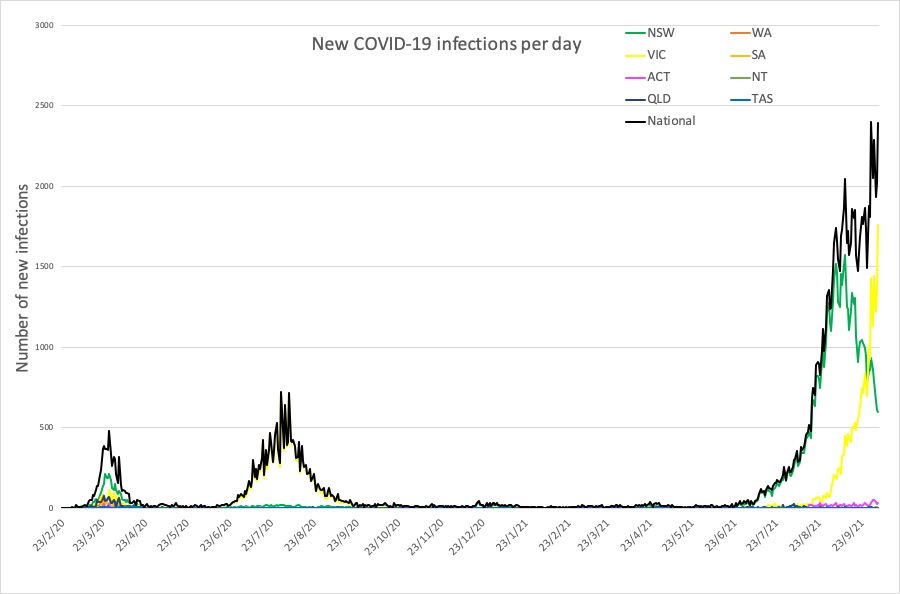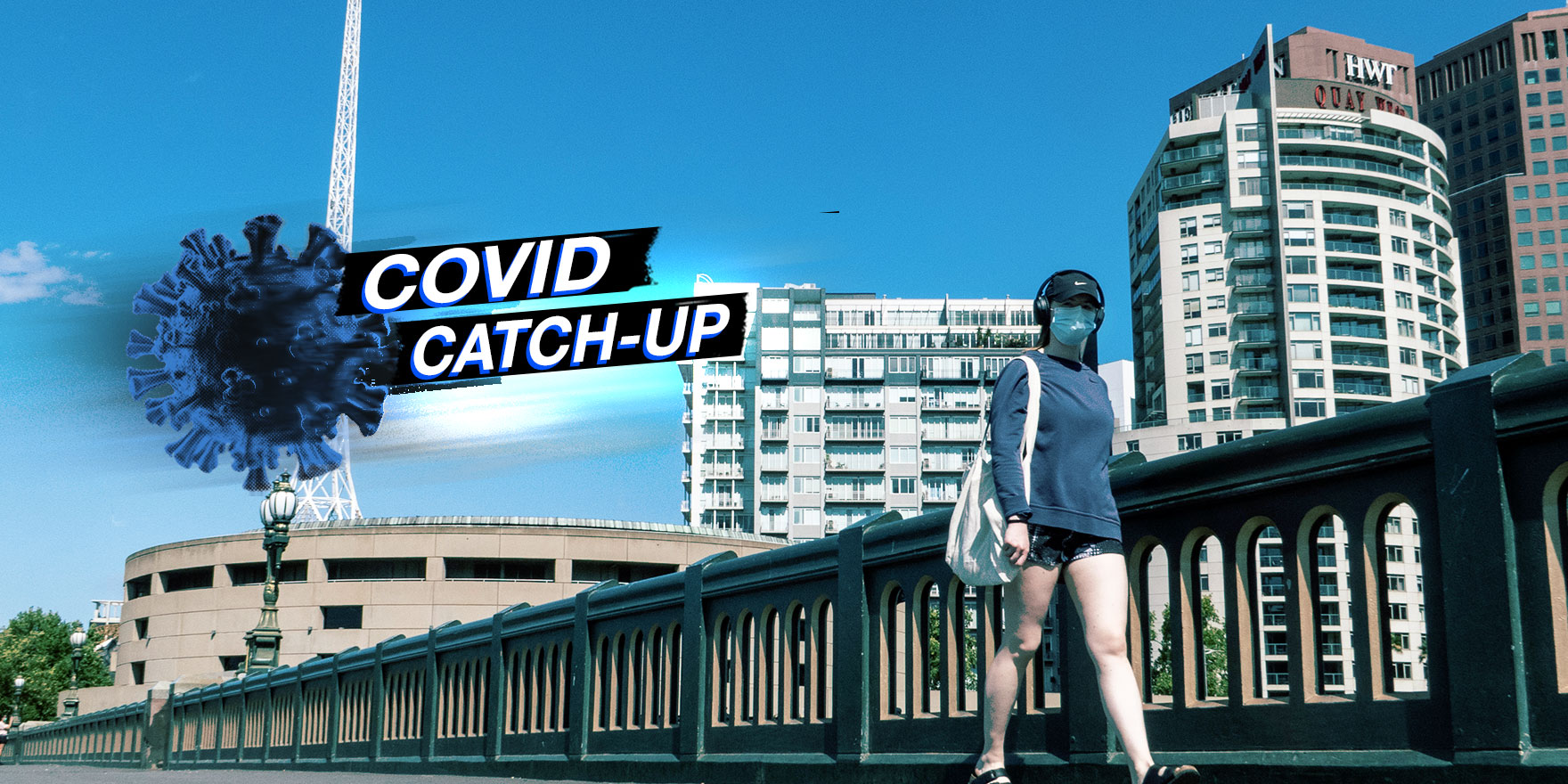And study finds overall myocarditis rate of 2.1 cases per 100,000 doses of Pfizer vaccine.
Welcome to The Medical Republic‘s Covid Catch-Up.
It’s the latest covid-19 news in one convenient post. Email bianca@biancanogrady.com with tips, comments or suggestions.
7 October
- AstraZeneca requests emergency use authorisation for prophylactic antibody combination.
- Large study finds 2.1 cases of myocarditis per 100,000 Pfizer vaccination doses, and most are mild.
- Global covid infections continue to fall.
- The latest from Australia’s covid vaccination roll-out.
- The latest covid infection numbers from around Australia.
The first non-vaccine treatment to prevent symptomatic covid has been submitted for emergency use authorisation to the US Food and Drug Administration.
AstraZeneca reports it has filed an application for AZD7442; a long-acting antibody combination which unpublished phase 3 trial data suggests can reduce the risk of symptomatic infection by 77%, even among individuals at greater risk of severe disease.
According to a press release from AstraZeneca, the trial of 5197 individuals without SARS-CoV-2 infection at baseline – three-quarters of whom had significant comorbidities at baseline – showed a significant reduction in symptomatic disease compared to placebo.
The drug contains two monoclonal antibodies that were derived from B-cells from patients who had recovered from SARS-CoV-2 infection. Previous in-vitro studies suggest the treatment is effective at neutralising newer variants including Delta.
A study of more than 2.5 million people aged 16 years or older who received at least one dose of the Pfizer vaccine identified 54 cases of myocarditis, representing an incidence of 2.1 cases per 100,000 first doses of the vaccine.
A study published in the New England Journal of Medicine used medical records to identify cases of myocarditis among those vaccinated with the Pfizer covid vaccine. This revealed that the highest incidence was in men aged 16-29, where the incidence was 10.7 cases per 100,000 doses.
Around three-quarters of the cases were mild, with most presenting as chest pain and – apart from one case which experienced cardiogenic shock – none needed inotropic or vasopressor support or ventilation.
Two-thirds of patients left hospital without needing any further treatment. A patient with pre-existing cardiac disease died of unspecified causes the day after hospital discharge.
New covid infections continue to decline globally, with 9% decrease this week compared to the previous week, according to the latest WHO update.
Despite the steady decline since August 2021, there were still more than 3.1 million new cases and just over 54,000 deaths reported between 27 September and 3 October.
The number of new cases is holding steady in the United Kingdom and United States, increasing in Russia and decreasing in India.
The latest update on Australia’s covid vaccine rollout shows just over 80% of Australians aged 16 years and older have had at least one dose of vaccine, and just over 58% have had two doses:
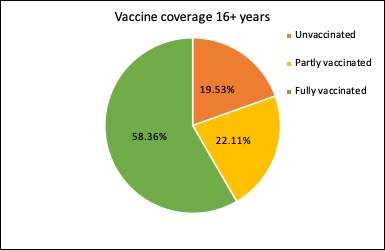
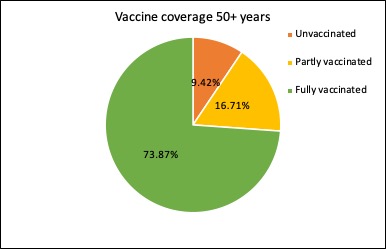
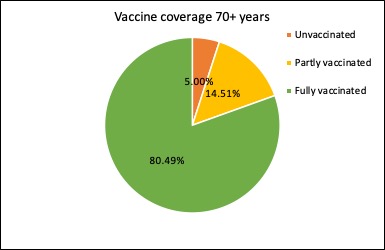
How does this compare with other nations? Pretty favourably. According to Statista, in the European Union, just over 63% of people are fully vaccinated, and in Japan, 61.8% are fully vaccinated. But despite being first out of the gate, the United States is now lagging Australia at 55.2% fully vaccinated, while just under 18% of Indian residents are fully vaccinated.
Here are the latest* covid infection numbers from around Australia to 9pm Wednesday:
National – 115,802 with 1357 deaths
ACT – 1162 (33)
NSW – 65,876 (597)
NT – 212 (0)
QLD – 2048 (2)
SA – 907 (1)
TAS – 236 (0)
VIC – 44,251 (1757)
WA – 1110 (1)
*The federal department of health website has not yet updated with today’s numbers.
